Can Dogs Have Olive Oil? Benefits of EVOO in Your Dog's Diet
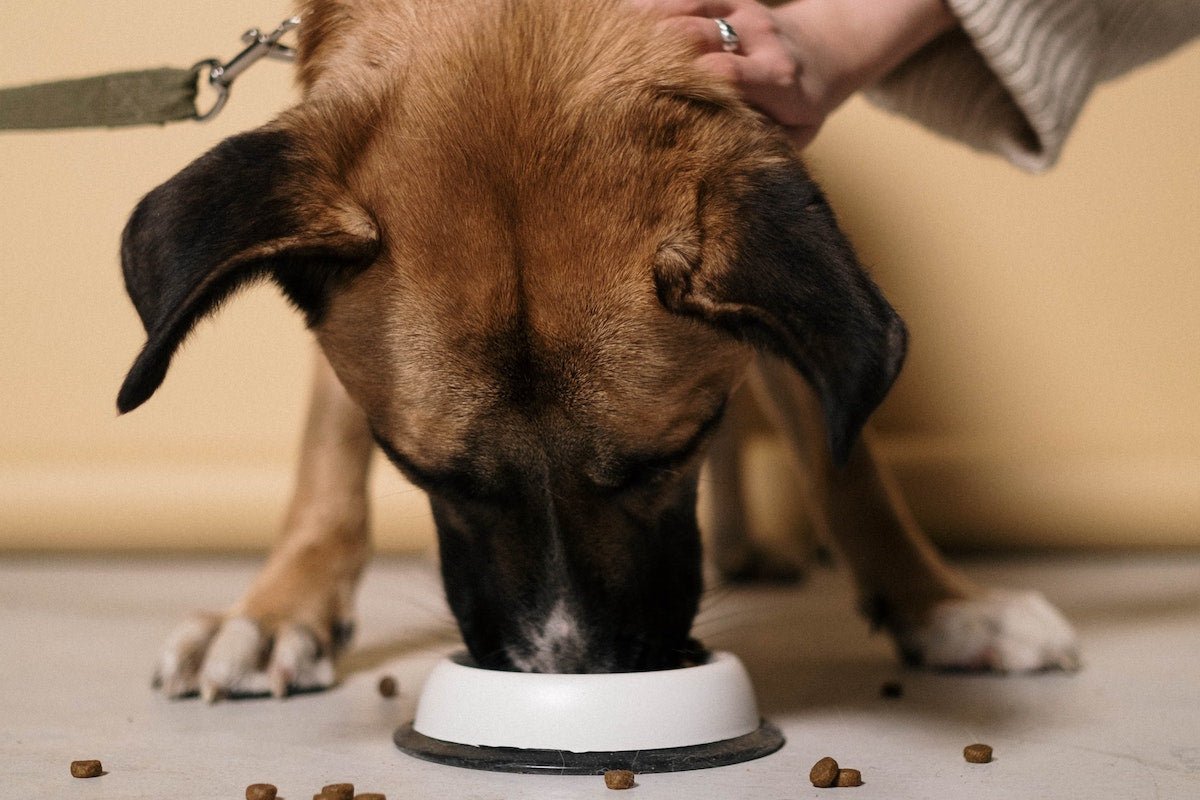
We are always talking about the hosts of benefits that come with introducing olive oil into your diet. Because of this, people often wonder if their pets can reap those same benefits, or if the risks outweigh the rewards.
So we've decided to break down this frequently asked question:
Can Dogs Have Olive Oil? The Benefits of Olive Oil in a Dog's Diet
The short answer? Yes. Olive oil is a natural source of healthy monounsaturated fats, which are essential for maintaining your dog's overall health. Healthy fats provide energy, support the immune system, and help maintain your dog's skin and coat. Olive oil can help with flaky skin, dry skin, and other skin related health problems.
In addition, olive oil has high levels of antioxidants, which can help reduce inflammation in the body and prevent damage from free radicals. It is also natural source of vitamin E and K, which are important for maintaining healthy blood clotting and bone health.
Olive oil is also beneficial for your dog's digestive health. The healthy fats in olive oil can help lubricate the digestive tract, preventing constipation and promoting regular bowel movements. Additionally, the antioxidants found in olive oil can help reduce inflammation in the digestive tract, which can help prevent gastrointestinal issues such as colitis and inflammatory bowel disease.
While more research is needed, some studies have suggested that olive oil may have beneficial effects for dogs with asthma. The anti-inflammatory properties of olive oil may help reduce inflammation in the airways and improve breathing function - and thus reducing the effects of asthma. However, it's important to consult with your veterinarian before making any dietary changes for your dog with asthma.

Why Olive Oil is Good for Overweight Dogs
The healthy fats in olive oil can also promote weight management, and shed some unwanted pounds and belly fat. Dogs that are overweight or obese are at risk of developing a variety of health issues, such as diabetes, arthritis, and heart disease.
Adding olive oil to your dog's diet can help them maintain a healthy weight by providing them with healthy fats that promote satiety and prevent overeating.
It's also worth noting that adding olive oil to your dog's diet may help reduce the size of their fat cells. The polyphenols in olive oil have been shown to reduce inflammation and improve insulin sensitivity, which can help prevent the accumulation of fat in the body and reduce the size of existing fat cells.
Why Olive Oil is Good for Senior Dogs
As dogs age, they may begin to experience a variety of health issues that can impact their quality of life. Fortunately, incorporating olive oil into their diet can provide a range of health benefits that can support their overall well-being.
One of the key benefits of olive oil for older dogs is its anti-inflammatory properties. As dogs age, they may be more susceptible to chronic inflammation, which can lead to a range of health issues, including arthritis, heart disease, and cancer. The polyphenols in olive oil have been shown to have powerful anti-inflammatory effects, which can help reduce inflammation throughout the body and potentially prevent or alleviate these age-related health issues.
In addition, olive oil may also help support cognitive health in older dogs. As dogs age, they may begin to experience cognitive decline, which can lead to issues with memory, learning, and behavior. The polyphenols in olive oil have been shown to have neuroprotective effects, which can help improve brain function and support cognitive health. By incorporating olive oil into their diet, you can potentially help your older dog maintain their cognitive function and quality of life.
Potential Risks of Olive Oil for Dogs
While olive oil (and olives) can be a healthy addition to your dog's diet, it's important to use it in moderation. Too much olive oil can lead to weight gain, diarrhea, and other digestive issues. Dogs with sensitive stomachs could also react negatively to the high fats in olive oil.
Additionally, some dogs may be allergic to olive oil, so it's essential to monitor your dog for any signs of an allergic reaction after introducing it into their diet.
If your dog experiences any adverse reactions, such as vomiting or diarrhea, stop using olive oil and consult your veterinarian. It's also important to note that olive oil should not be used as a substitute for a balanced and complete diet. Olive oil should only be used as a supplement to a healthy diet that includes a variety of proteins, carbohydrates, and fats.
The Best Type of Olive Oil for Dogs: Extra-Virgin Olive Oil
When choosing olive oil for your furry friend, the best choice is high-quality extra virgin olive oil (EVOO). EVOO is the purest and least processed form of olive oil, and it contains the highest levels of healthy fats and antioxidants. You should also avoid any flavored or infused olive oils that may contain additives or ingredients that could be harmful to your dog.
It's important to note that not all olive oils are created equal, and some may be lower quality or even adulterated. To ensure that you're getting a high-quality product, look for olive oils that are from one country of origin, are in tinted bottles (preferably glass), and don't have any additional ingredients.
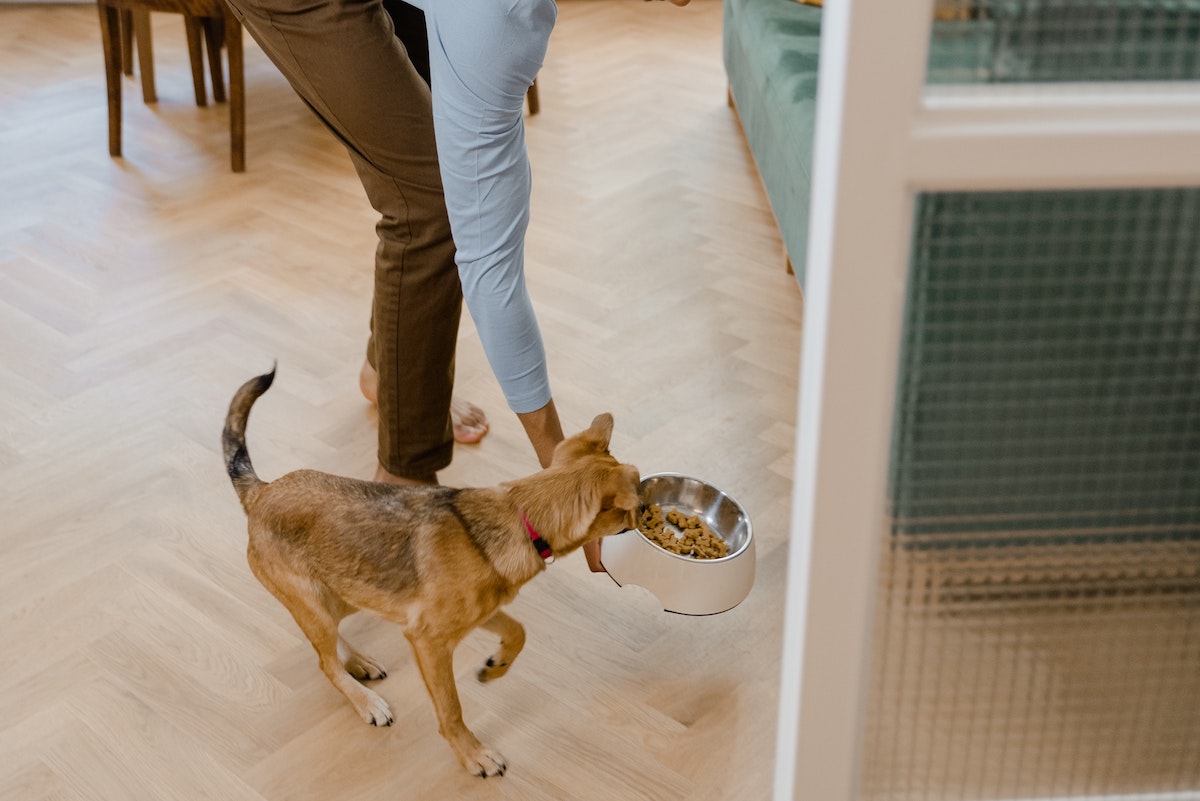
How to Incorporate Olive Oil into Your Dog's Diet
When adding olive oil to your dog's diet, it's important to start slowly with small amounts and gradually increase the amount over time.
A good starting point is to add ¼ teaspoon of olive oil per 10 pounds of body weight to your dog's food on a daily basis. Small quantities are important at the start, but you can gradually increase the amount over several weeks until you reach a maximum of 1 teaspoon of olive oil per 10 pounds of body weight per day.
One of the best ways to give that daily dose of olive oil is to mix the EVOO thoroughly into your dog's food. This is especially helpful if you are trying to feed your pet healthy food that they don't necessarily love the taste of. Mix in some olive oil, and your dog will surely scarf down their meal!
You can also try drizzling olive oil over your dog's food as a tasty and healthy addition. Sure, they might lick some off the top before getting to the rest, but if they don't have a sensitive stomach, and will enjoy their food regardless, a drizzle at the top won't hurt!
Another trick? Olive oil dog treats! Try making your own dog treats at home, and incorporate some EVOO rather than using butter or dairy-filled ingredients. For a dog treat recipe your pup will surely love, test out this recipe!
Keep Your Pup Healthy!
So yes, adding olive oil to your dog's diet can provide many health benefits, including promoting a healthy coat and skin, maintaining a healthy weight, and improving digestive health.
However, it's important to use olive oil in moderation and choose a high-quality product. If you have any concerns or questions about incorporating olive oil into your dog's diet, consult with your veterinarian.
With the right precautions and practices, olive oil can be a healthy and beneficial addition to your dog's diet, while adding a delicious treat to their standard meal.


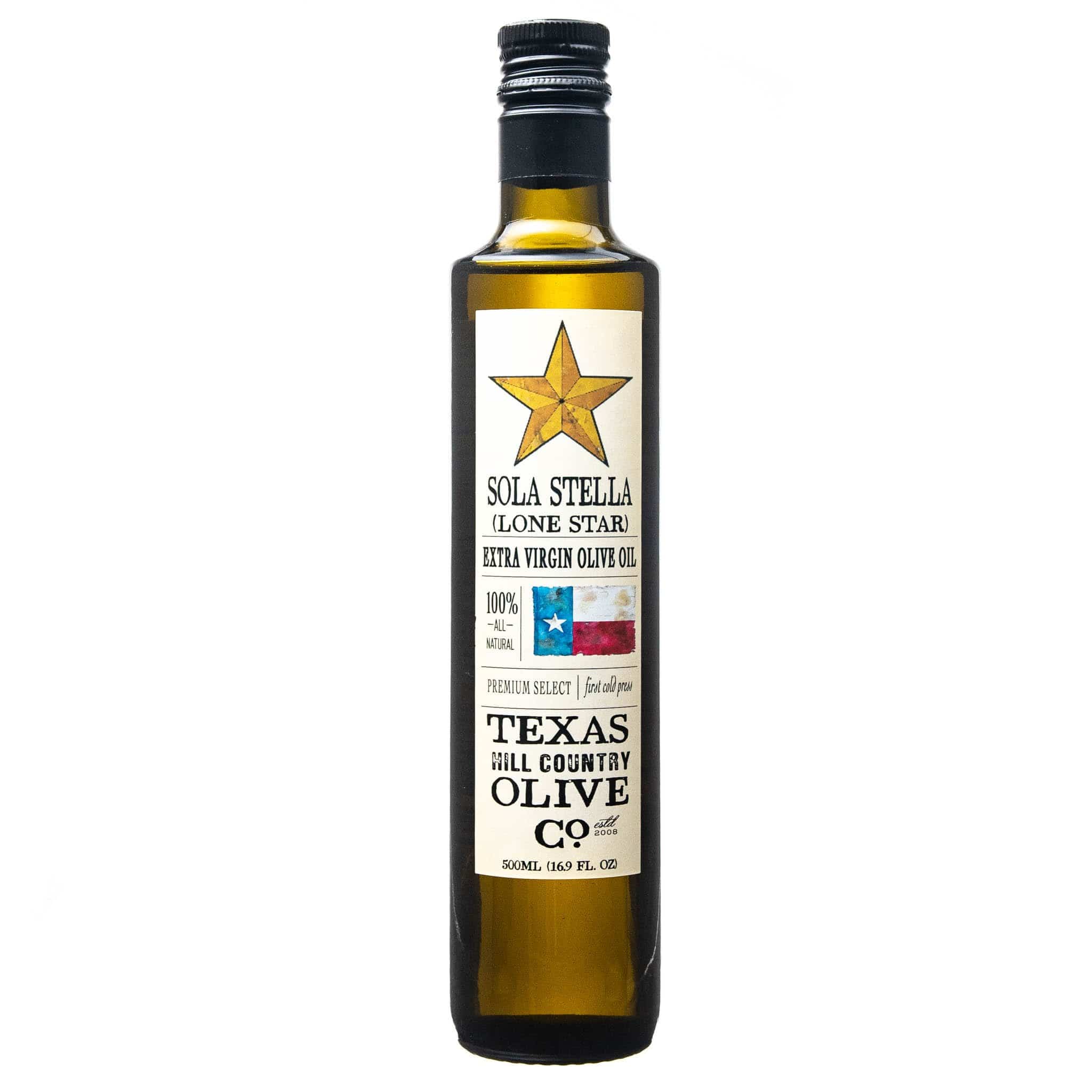
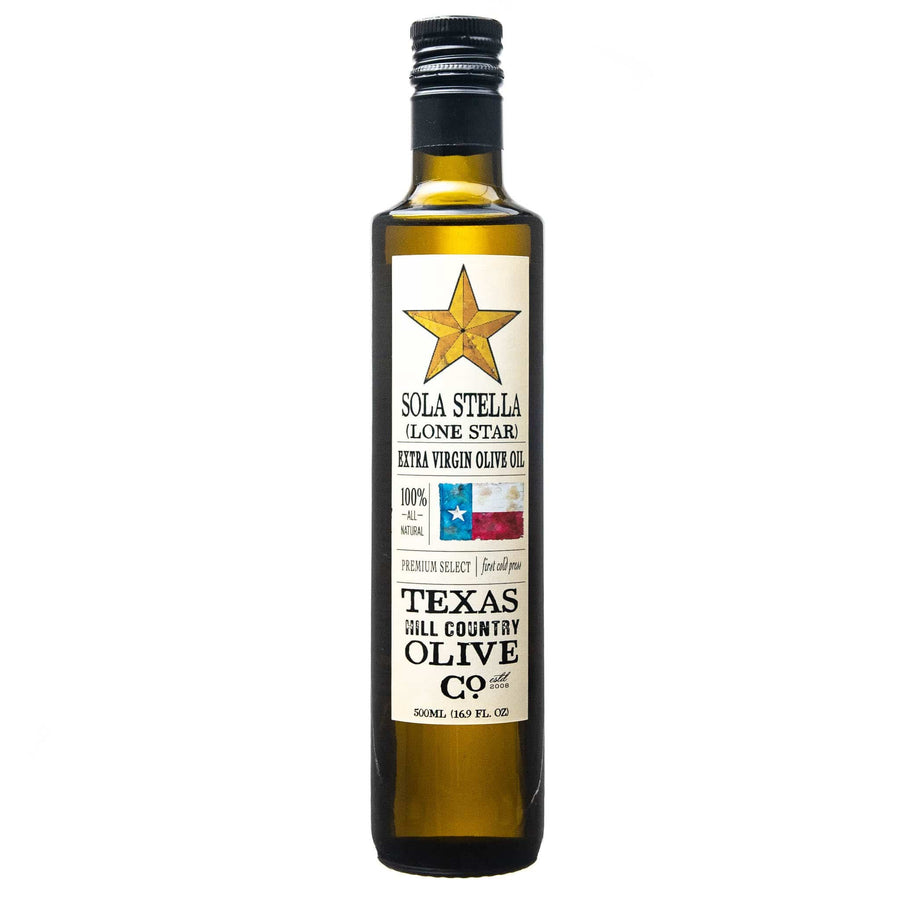
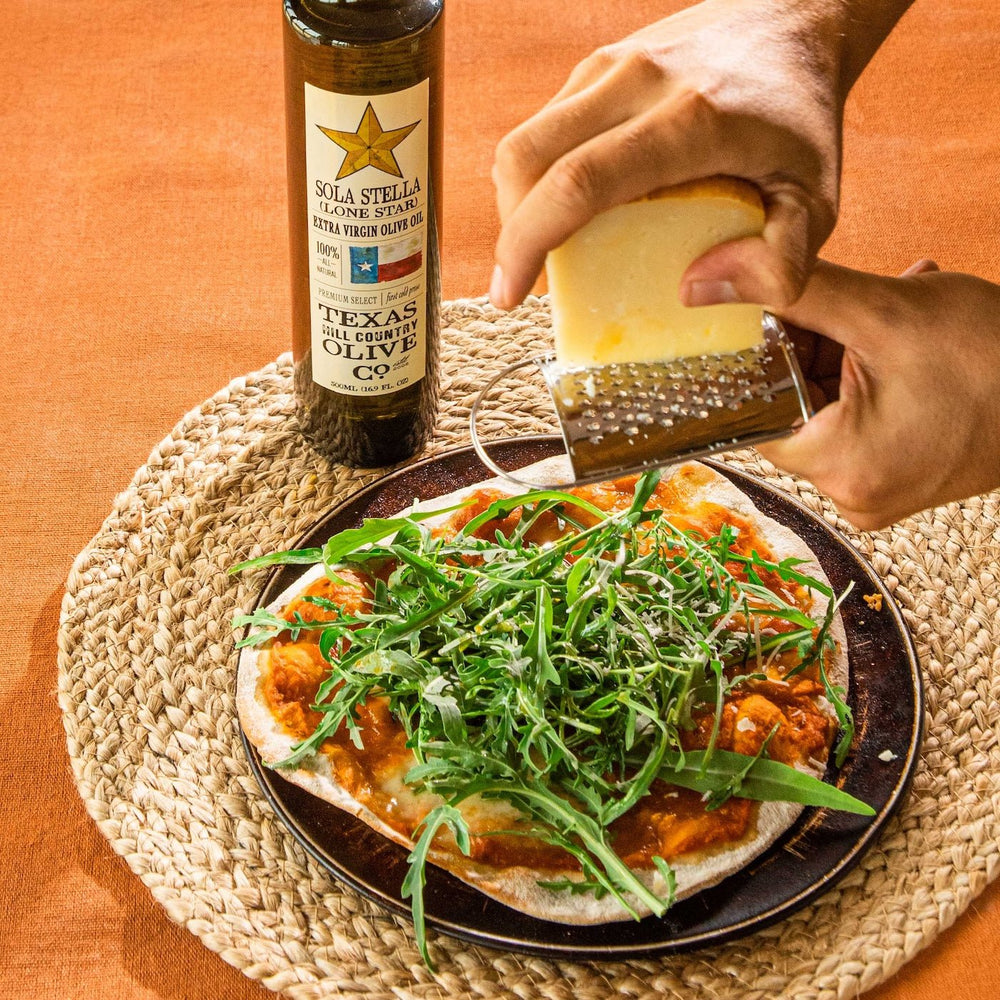
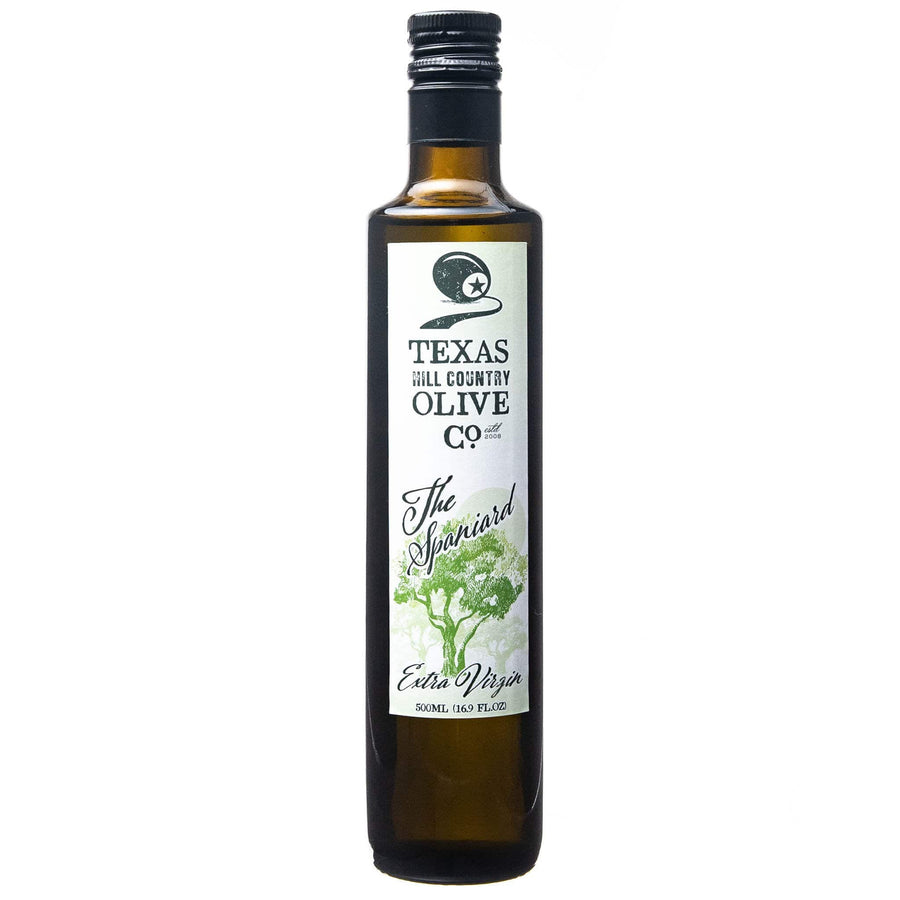
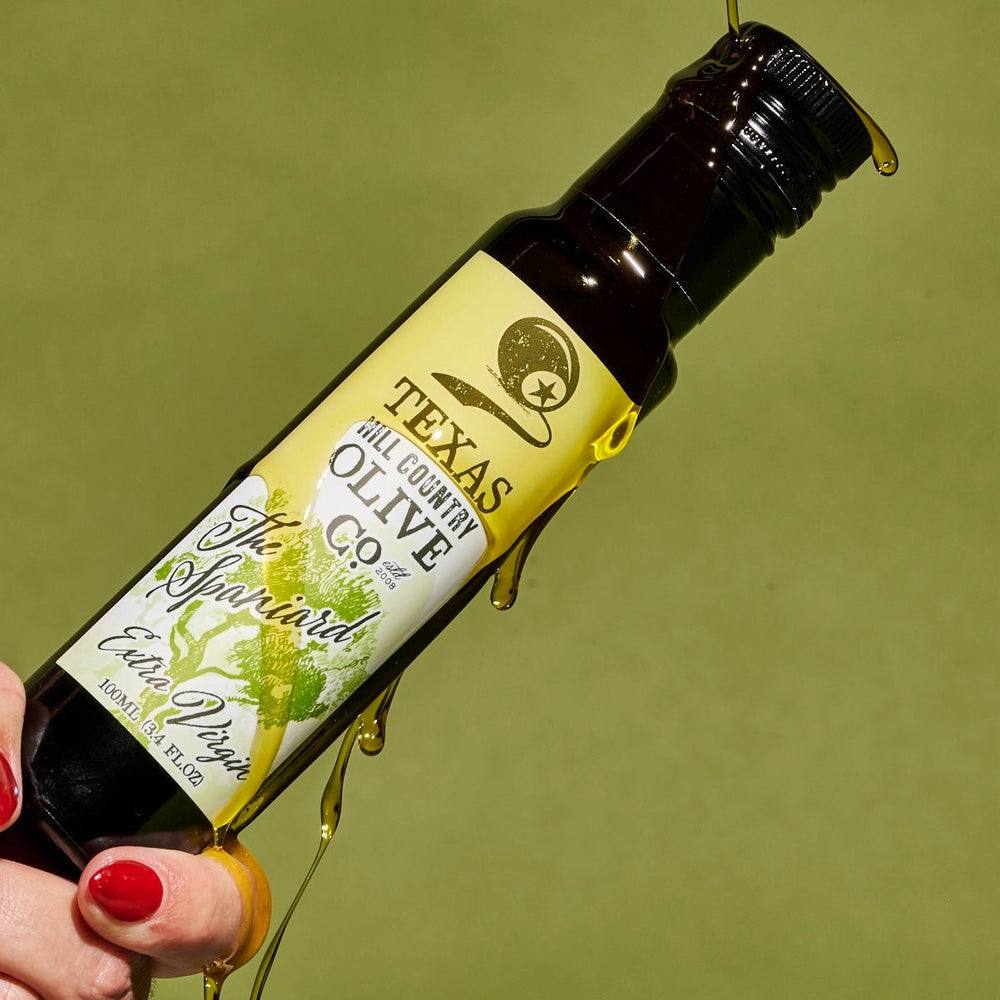
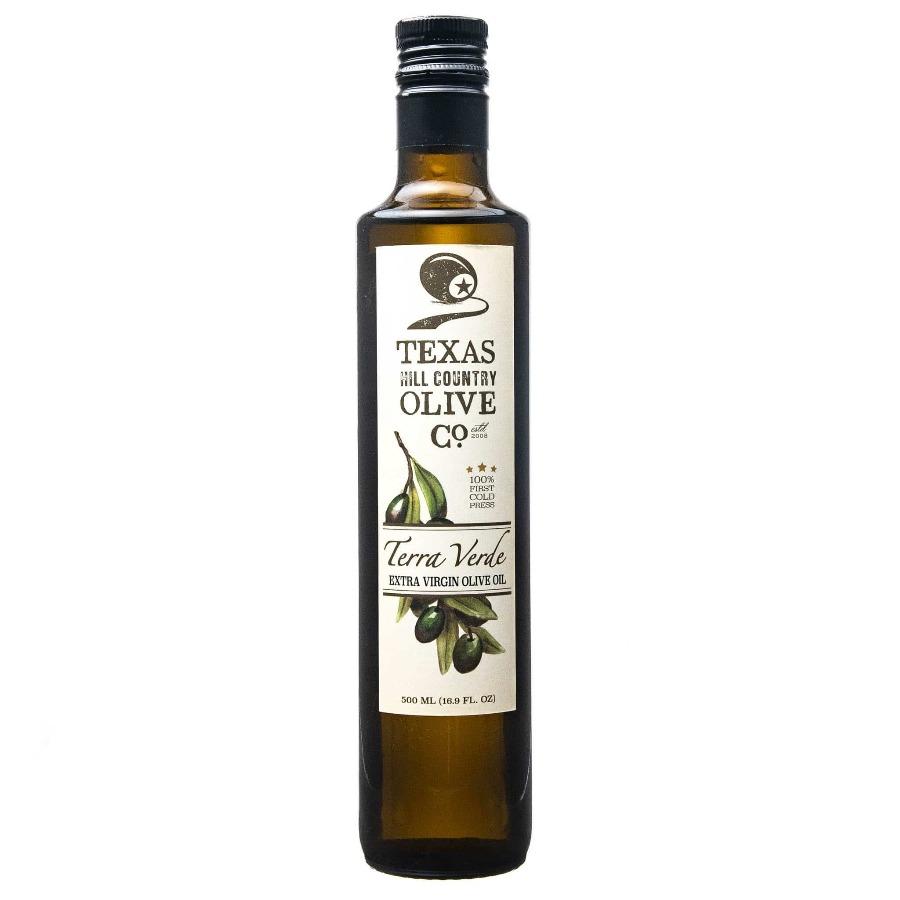
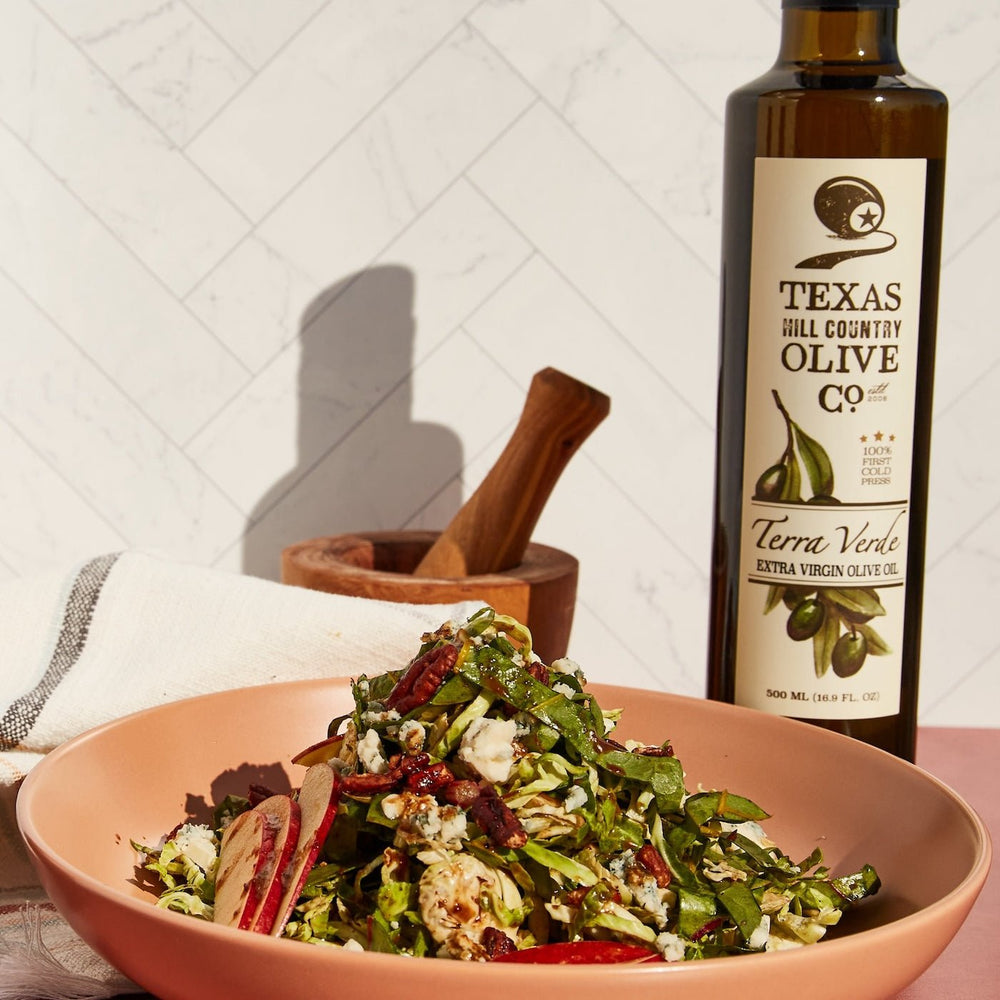


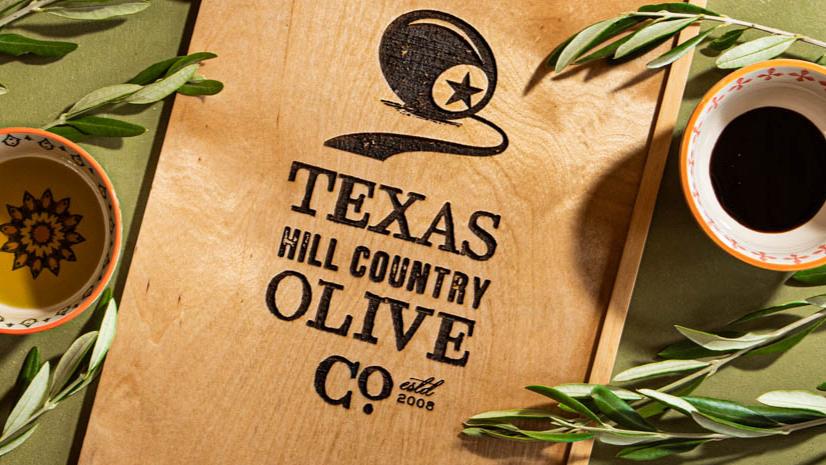


I thank you for the info. I recently splurged on a quality bottle of EVOO and have been using it on my dog’s ears, the inner floppy part to maintain health and for prevention. I give him half a tsp daily too. Next time I need a bottle, I will consider Texas Hill Country 💙✌🏻💪🏻
My Benny is 13 and we’re actually just starting to implement it into our diet. We’ll keep ya posted! )
Thanks for info
I have been adding EVOO to both of my dogs meals for the past 13 yrs, and they both aged very well.
Leave a comment